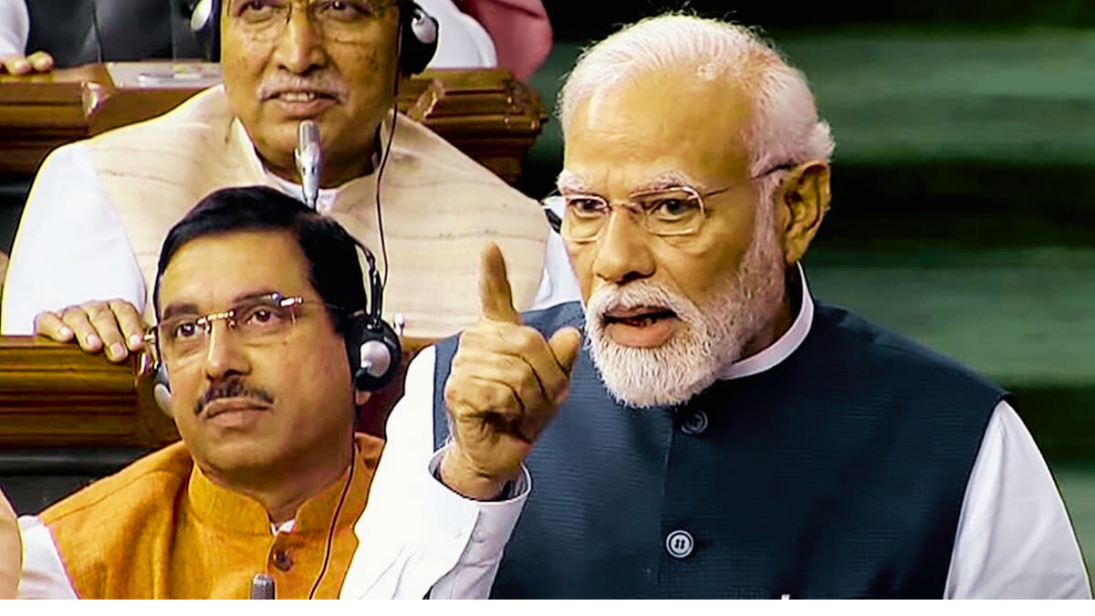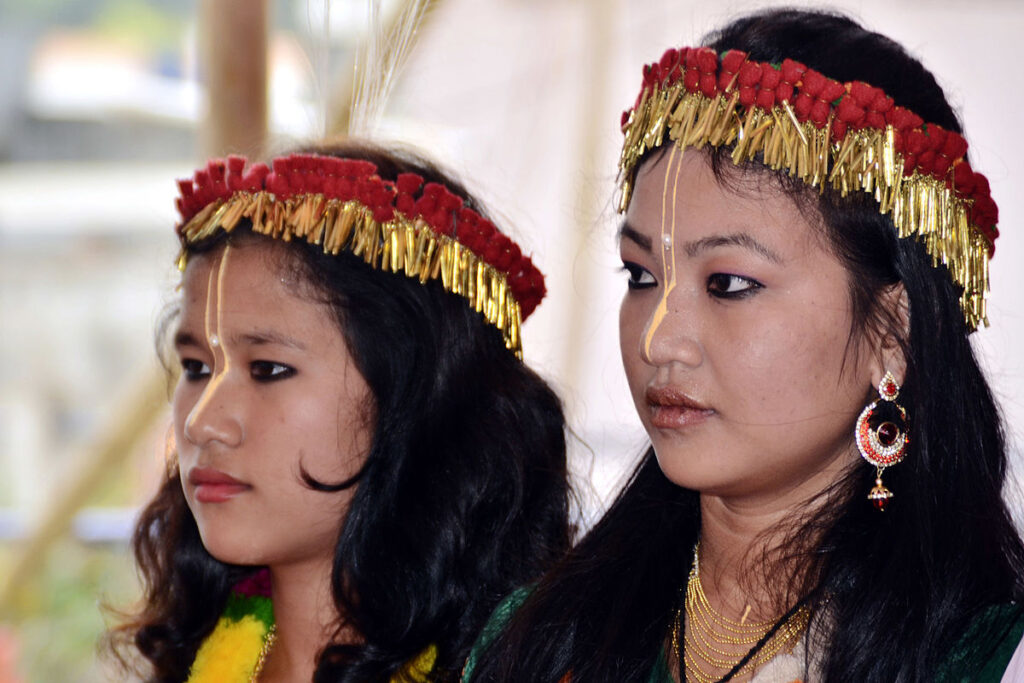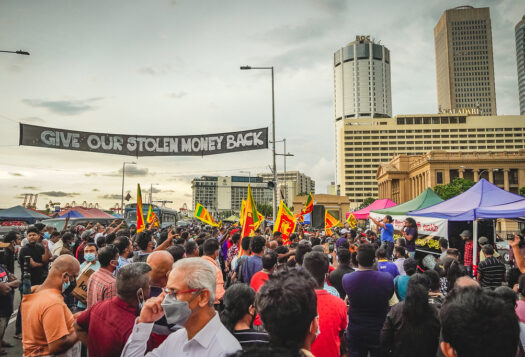
September 3 will mark three months since the mayhem in India’s northeastern state of Manipur began. The bloody rivalry between the Kuki and Meitei communities, which was triggered after the High Court passed a resolution to grant the majority Meitei community ‘Scheduled Tribe’ status in May, has brought the state to the brink of civil war. The violence has resulted in more than 150 deaths and has displaced 55,000 people so far, and the Bhartiya Janata Party has failed to bring these groups to the negotiation table.
The Indian Supreme Court said that it will supervise all the cases that have been registered concerning violence against women in Manipur. In this regard, the three-judge bench under the supervision of the Chief Justice of India will relocate retired senior police officials to investigate the cases in Manipur and then report back to the Supreme Court. While the Supreme Court initiative is indeed a positive step, there is still much for the government to assess in terms of policy feasibility, and for this, engaging all impacted communities is vital. The violence will only worsen if the Center is unable to come up with a holistic policy framework that would engage all groups instead of only the Meitei majority.
Tracing the Roots of the Conflict
The conflict escalation in the state has its roots in a ten-year-old entreaty by the Meitei group for the acquisition of the status of ‘Scheduled Tribe’, which would transform the valley tribe into a constitutionally-recognized ethnic group, opening pathways for opportunities and resources. The status will also allow the Meitei people to buy land in the hills where the Nagas and Kukis live. The Kuki community opposes this demand. On May 3, 2023, when the Manipur High Court approved and recommended to the Center to consider the Meitei’s demand, Kukis organized a ‘Tribal Solidarity March’ with the help of the All Tribal Student Union Manipur (ATSUM) in ten of the sixteen state districts. In response, the Meitei community also organized protests and blockades to counter the Kukis and other allied groups which resulted in weeks of bloody conflict. Home Minister Amit Shah visited the state in May and promised to resolve the issue, but even after the Army was deployed, there has not been any resolution in the state.
The violence will only worsen if the Center is unable to come up with a holistic policy framework that would engage all groups instead of only the Meitei majority.
The Kukis and Nagas believe that the Scheduled Tribe status will enhance the lifestyle of an already-privileged group and thus deprive their minority communities of basic resources and opportunities. Notably, the potential of the Meitei people to buy land in the hills poses a key threat to the Kukis and Nagas, as this would threaten their lives and livelihoods. Furthermore, reports suggest that migrants from Myanmar consistently cross the border and set up illegal villages on government land in the hills of Manipur. These illegal villages and the existing settlements of Kukis and Nagas get conflated, resulting in the eviction of Kukis from their homes. A combination of these factors has resulted in a heightened fear of being marginalized.
The minimal international condemnation of the violence in Manipur has been met with the Center asserting that this is an internal issue. A resolution was passed by the European Parliament on 13 July, asking the Indian government to take action to restore peace among the conflicting parties, and earlier on 6 July, U.S. Ambassador to India Eric Garcetti’s comments on Manipur were met with an angry Indian response. In response to a no-confidence motion by the Opposition against the BJP’s silence on Manipur, PM Modi replied that the Opposition has only been trying to politicize the matter. As the Opposition walked out of the session, the BJP won the no-confidence motion. Even the Indian public and the mainstream media only showed their anger against the government’s complacency after a video of two Kuki women being sexually assaulted went viral on social media

The BJP’s Biased Role
The ruling Bhartiya Janta Party (BJP) has always advocated the notion of democracy at the international level and yet, their domestic policies contradict this stance. The recent violence in Manipur and the central government’s silence and inability to maintain peace is evidence of the BJP’s lack of capacity and interest in India’s Northeast. Prime Minister Modi’s lack of attention towards the recent harassment of two Kuki women by a Meitei mob in Manipur, barring a negligible address in Parliament, highlights the BJP’s deafening silence on Manipur. One such incident occurred on May 4 when two Kuki women were gang raped and despite all the records and eyewitnesses, the police did not mention rape in the FIR. This is just the tip of the iceberg. Most of the cases remain unreported because of the fear that local police are on the side of the Meiteis. Kukis have accused the Police of providing aegis to militant organizations to unleash violence against them.
The Meitei community is a Hindu majority group and is dominant in the state, covering almost 54 percent of the total state population. The Kukis and Nagas, mostly Christian, are minorities and have historically not only had less access to welfare but also minimal political representation in the state. Not only is the Chief Minister of Manipur, Biren Singh, a Meitei, but Meiteis occupy 40 out of 60 seats of the state’s legislative assembly. Singh, a member of the BJP, has been accused of turning a blind eye towards the Meitei people’s targeting of Kukis and Nagas. Furthermore, he is associated with two Hindu nationalist Meitei militant groups, Arabai Tenggol and Meitei Leepun.
The recent violence in Manipur and the central government’s silence and inability to maintain peace is evidence of the BJP’s lack of capacity and interest in India’s Northeast.
Another probable reason for the BJP’s silence is the upcoming general elections of 2024. PM Modi is attempting to secure the majority vote that would come from the Meitei community and is thus walking a careful line and failing to mitigate the violence. While the BJP seems to be expanding its outreach to certain minority and tribal communities for electoral purposes in other states like Madhya Pradesh, this is not the case in Manipur, as catering to a minority community in the state would result in bereaving the majority group. Since the 1980s, the BJP has not been able to secure a majority in Manipur, neither in the Lok Sabha nor in the Vidhan Sabha elections. However, the BJP won both elections in 2022. Manipur contributes two seats in the Lok Sabha and has 60 Vidhan Sabha seats. As the competition with the Indian National Congress stiffens, the BJP cannot risk losing even one seat.
Conclusion
So far, an all-women committee of three former high court judges has been established by the Supreme Court to attempt to curtail the issue with the aim of providing and monitoring relief, rehabilitation, and the restoration of homes and places of worship. PM Modi has also made statements highlighting that the crimes against women in Manipur are unforgivable and that the country stands with the minorities suppressed in Manipur. PM Modi also won the no-confidence vote in the Lok Shaba and criticized the INC leadership for politicizing the Manipur issue. However, these minor actions are not enough and to bring the situation under control, the BJP should avoid using lackadaisical policies for political number scoring.
At present, Kukis look towards any peace initiative as biased because they don’t trust the Biren Singh government or the local police. The government should revoke its decision to grant Meiteis Scheduled Tribe status and keep them in the category of Other Backward Castes (OBCs). Meiteis themselves had decided to remain in the OBC instead of ST when a Constitutional Order list of these communities was updated after 1950. Furthermore, the Manipur conflict will only be resolved if the BJP establishes a ceasefire and listens to the demands of both communities equally rather than taking biased actions such as evicting Kukis and destroying their fields. Convincing the Meitei on the revocation of the SC status will be a challenge, but it will require the political wisdom of the BJP to keep both communities satisfied. The central government should not ignore the human price of a conflict that has been called the “closest to a civil war that India has ever seen,” for the sake of two seats in the Lok Sabha.
Also Read: Ayodhya Verdict: Is the Political Climate in India Impeding the Rights of Religious Minorities?
***
Image 1: Narendra Modi Speaking on No-Confidence Motion in 2023 via Wikimedia Commons.
Image 2: Girls in Manipur via Wikimedia Commons.


